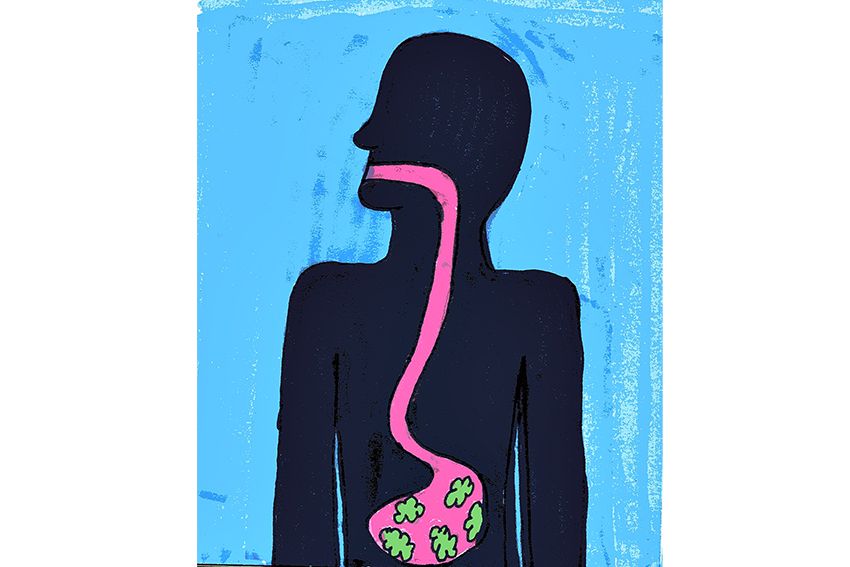The diversity of bacteria in a patient’s gut may influence how well they respond to cancer treatments.
University of Texas MD Anderson Cancer Center researchers recently discovered that skin cancer patients with a diverse gut microbiome respond better to immunotherapy drugs. This type of drug stimulates a patient’s immune system to fight off diseases.
Jennifer Wargo, the study’s lead author and professor of oncological surgery, and Vancheswaran Gopalakrishnan, a graduate research assistant, together obtained over 300 bacteria samples from patients with skin cancer.
Wargo said prior research found that the diversity of gut bacteria in mice affects how well the animals respond to immunotherapy drugs. She said their team wanted to know if the same phenomena was observable in humans.
“There’s emerging evidence that the bacteria within our intestines can actually modulate our immune system, systemically, in our blood stream and elsewhere in our body,” Wargo said.
The researchers took bacterial samples from the mouth and gut of patients.
“The niches of the two are very different,” Gopalakrishnan said. “The oral cavity is completely different from the gut biota. The gut microbiome has been proven to be very diverse–it’s the most diverse microbial niche in our body.”
They discovered that while the mouth bacteria did not affect the patient’s reaction to the drug, the gut bacteria did.
“We found pretty much night-and-day differences between people who respond [to the medicine] versus those who don’t,” Wargo said.
Wargo said they found that the patients who responded the best to the immunotherapy drugs had higher amounts of certain bacteria in their guts. The specific bacteria were ruminococcaceae bacteria, which is commonly found in a fiber-rich diet, and bifidobacteria, which is common in yogurt and pickles.
Gopalakrishnan said a patient’s gut microbiome can be diversified by changing their diet, administering antibiotics that get rid of certain bacteria, and through fecal transplants, in which certain bacteria are transplanted into the patient from another person’s gut.
Wargo said the team is trying to answer the question of whether or not a perfect cocktail of bacteria can be created to help patients respond to immunotherapy.
She said the team is currently developing a clinical trial to determine if they can find a way to definitively modify a patient’s gut microbiome and deliver immunotherapy to those with skin cancer.
“It’s clearly an area that’s going to be game-changing for cancer treatment,” Wargo said.















